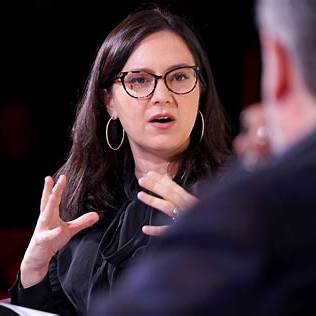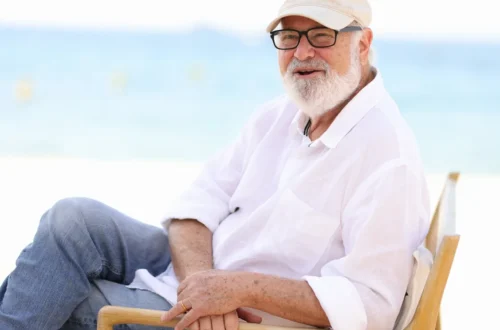Bari Weiss arrives at CBS News at a moment of upheaval in the industry, stepping into a role of great influence and intense scrutiny. Her appointment follows Paramount’s decision to buy her independent news outlet, The Free Press, and to install her as the top editorial voice at CBS. In doing so, she moves from the world of commentary and cultural debate into institutional power—charged with shaping both the direction and credibility of a major broadcast news organization.
Weiss is known for her outspokenness and critique of prevailing norms across journalism, identity politics, and media institutions. She has built a personal following through columns, public debates, podcasts, and her digital platform. But her path to CBS reflects more than a brand evolution; it signals a test of whether a voice forged in independent media can adapt to, and command, legacy newsroom machinery.
Her background spans prominent journalistic institutions. Early in her career she held editorial roles at outlets like The Wall Street Journal, writing about culture, politics, and the intersection of ideas. Later, she joined The New York Times as an opinion editor and columnist, where her pieces often challenged prevailing orthodoxies, raised uncomfortable questions about identity, free speech, and institutional bias, and provoked sometimes bitter responses from critics inside and outside the newsroom. Her departure from the Times was widely seen as a clash over tone, voice, and internal culture. After leaving, she launched The Free Press (evolving from her earlier newsletter efforts), positioning it as a platform for independent thought unmoored from institutional constraints.
In her new role at CBS News, Weiss will face significant operational and cultural challenges. The responsibilities are vast: overseeing editorial strategy across broadcast, digital, and network platforms; appointing or vetting key newsroom leadership; managing legal and reputational risk; setting journalistic norms; allocating resources; and coordinating coverage priorities both domestically and internationally. She will also need to balance the tension between bringing in fresh vision and maintaining the institutional credibility and journalistic standards CBS has historically claimed. Her editorial instincts are drawn from commentary, critique, and ideology—strengths for shaping voice and agenda, but in some respects unfamiliar when it comes to running large investigative units, managing global bureaus, or coordinating daily newsgathering operations.
Within the CBS News staff, Weiss’s arrival has ignited debate. Some veteran journalists worry her reputation as a provocateur could politicize the newsroom or compromise editorial neutrality. Others view her presence as a necessary shakeup—a chance to blend more intellectual rigor, provocative analysis, and ideological diversity into CBS’s offerings. Whether she will be accepted as a newsroom leader or remain viewed as an outsider applying brand pressure is a question many are watching closely.
Her stated priorities are already under speculation. Observers expect she will push for more editorial autonomy for voices outside mainstream media, more long-form cultural analysis, deeper investigations of institutional groupthink, and greater attention to cross-platform integration—bridging broadcast journalism with written, sited commentary, podcasts, and multimedia. She has emphasized opposition to ideological conformity and urged intellectual openness. Those principles will now be tested inside an inherited newsroom structure with existing budgets, policies, and expectations.
Paramount’s decision to buy The Free Press and elevate Weiss to editor-in-chief underscores broader trends in media consolidation, identity alignment, and personality-driven news operations. Legacy news networks are under pressure to differentiate themselves, keep audiences engaged, and respond to digital-native competition. For Paramount, the move is a bet on injecting ideological edge and public profile into CBS News. The hope is that a strong personality can attract new viewers and subscriptions. The risk is alienating traditional audiences who expect impartiality from a broadcast news brand.
For Weiss herself, the transition is striking. She moves from being a critic of institutions to being a custodian of one. Her influence will now be judged not just on provocative essays or tweet storms but on whether she can sustain institutional integrity, balance competing stakeholder pressures, and preserve journalistic trust while pursuing creative editorial change. Her ability to navigate newsroom politics, manage skeptical colleagues, and respond to breaking crises will reveal how far she can translate her brand into newsroom authority.
In the weeks ahead, every hiring decision, coverage choice, tone shift, and public response will be read as signal. Will CBS under Weiss begin to lean more ideologically, or can it maintain a semblance of balance while giving voice to contrarian perspectives? Will investigative teams flourish or struggle under reoriented priorities? Will the institution adapt to her or she to it? In an era when news credibility is fragile, Weiss’s success will hinge on whether she can earn trust even as she seeks to leave her imprint. As she steps into the helm at CBS, the media world will be watching to see whether a once-outsider can reshape a powerful institution without undermining it.




